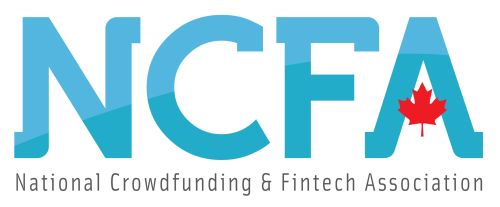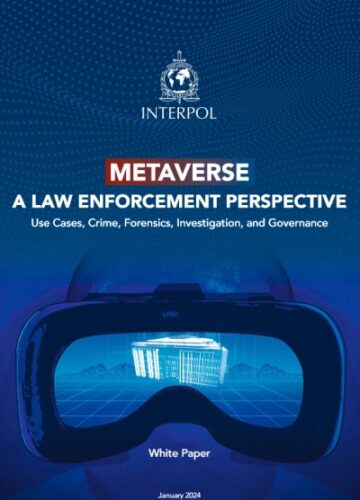Climate Disclosure | Feb 20, 2024
Embracing New Climate Disclosure Standards in Canada
With the Canadian Securities Administrators (CSA) proposing the National Instrument 51-107 Disclosure of Climate-related Matters (NI 51-107) and its Companion Policy 51-107CP, alongside the Office of the Superintendent of Financial Institutions (OSFI) introducing the B-15 Climate Risk Management guidelines, the governance implications for directors, boards, and public company governance are profound.
See: Fintech Can Combat Corporate Greenwashing
This article sheds light on these regulatory shifts, offering insights and implications for Canadian fintechs and public companies, in alignment with the International Sustainability Standards Board’s (ISSB) global standards.
CSA’s Climate Disclosure Proposals
The CSA’s Climate Disclosure Proposals aim to enhance transparency and accountability in how Canadian public companies assess and disclose climate-related risks and opportunities. This initiative reflects a growing recognition of the importance of climate-related information for investors, both in Canada and globally. The proposals are designed to align with the Task Force on Climate-related Financial Disclosures (TCFD: disbanded October 2023 with mandate picked up by IFRS) recommendations, covering governance, strategy, risk management, and metrics and targets for climate-related issues.
OSFI’s B-15 Climate Risk Management Guidelines
Simultaneously, OSFI has introduced the B-15 guidelines, marking a critical regulatory development for financial institutions in Canada. These guidelines mandate banks, insurance companies, and other financial entities to robustly assess, disclose, and manage the physical and transitional risks associated with climate change. The B-15 guidelines emphasize the need for financial institutions to integrate climate risk into their overall risk management frameworks and enhance transparency in their climate-related disclosures. These guidelines are now in effect. Yet, despite push back OSFI is still playing catch-up when evaluating international comparators such as climate change disclosure initiatives in the UK, climate risks and regulatory capital frameworks, and on integrity.
ISSB’s Global Standards
The ISSB has introduced proposed standards for climate-related disclosure and sustainability-related financial information, setting a new benchmark for global sustainability disclosures. These standards aim to serve as “the global baseline” upon their finalization, emphasizing the need for disclosures that provide consistent and comparable information for investors.
In 2024, the International Sustainability Standards Board (ISSB) has implemented the IFRS S1 and S2 standards as voluntary standards for organizations, focusing on disclosures about governance, strategy, risk management, and metrics and targets for material sustainability and climate-related risks and opportunities. These standards, which incorporate the recommendations of the Task Force on Climate-related Financial Disclosures (TCFD), aim to simplify the landscape of disclosure initiatives for companies and investors, ensuring consistent and comparable information.
See: Decarbonizing Insurance and the Adaptation of Carriers to a New Zero Economy
The ISSB has also updated the Sustainability Accounting Standards Board (SASB) standards and released resources to aid in applying IFRS S2, emphasizing the nature and social aspects of climate-related risks and opportunities. Learn more about what to expect from the ISSB in 2024 here.
Implications for Governance
For directors and boards of Canadian public companies and financial institutions, these developments underscore the necessity of robust governance frameworks that explicitly address climate-related risks and opportunities. This includes establishing clear oversight mechanisms, delineating management’s responsibilities, and ensuring that board committees, particularly the audit committee, are equipped to assess and manage climate risks effectively.
- Boards must integrate climate-related risk oversight into their governance structures, updating charters and mandates to reflect this priority.
- Clearly defined responsibilities for assessing and managing climate-related risks are essential, necessitating robust disclosure controls and procedures.
- Boards are tasked with evaluating the materiality of climate-related risks and opportunities, potentially employing scenario analysis to assess the resilience of business strategies.
Opportunities for Fintechs
As Canada aligns its climate disclosure regulations with global standards, the collaborative efforts of regulatory bodies, public companies, and the fintech sector will be key to fostering a sustainable and transparent corporate ecosystem.
See: Climate Inflation Discussion for a Sustainable Future
The regulatory shift towards comprehensive climate disclosure presents a unique opportunity for the Canadian fintech sector. Fintechs have an opportunity to lead innovation in climate risk assessment and disclosure solutions, offering tools and platforms that enable companies to meet these new standards efficiently. By developing solutions and integrating new technologies that facilitate data analysis, reporting, and scenario modeling, fintechs can enhance transparency and sustainability in the financial sector.

 The National Crowdfunding & Fintech Association (NCFA Canada) is a financial innovation ecosystem that provides education, market intelligence, industry stewardship, networking and funding opportunities and services to thousands of community members and works closely with industry, government, partners and affiliates to create a vibrant and innovative fintech and funding industry in Canada. Decentralized and distributed, NCFA is engaged with global stakeholders and helps incubate projects and investment in fintech, alternative finance, crowdfunding, peer-to-peer finance, payments, digital assets and tokens, artificial intelligence, blockchain, cryptocurrency, regtech, and insurtech sectors. Join Canada’s Fintech & Funding Community today FREE! Or become a contributing member and get perks. For more information, please visit: www.ncfacanada.org
The National Crowdfunding & Fintech Association (NCFA Canada) is a financial innovation ecosystem that provides education, market intelligence, industry stewardship, networking and funding opportunities and services to thousands of community members and works closely with industry, government, partners and affiliates to create a vibrant and innovative fintech and funding industry in Canada. Decentralized and distributed, NCFA is engaged with global stakeholders and helps incubate projects and investment in fintech, alternative finance, crowdfunding, peer-to-peer finance, payments, digital assets and tokens, artificial intelligence, blockchain, cryptocurrency, regtech, and insurtech sectors. Join Canada’s Fintech & Funding Community today FREE! Or become a contributing member and get perks. For more information, please visit: www.ncfacanada.org
Related Posts
- SEO Powered Content & PR Distribution. Get Amplified Today.
- PlatoData.Network Vertical Generative Ai. Empower Yourself. Access Here.
- PlatoAiStream. Web3 Intelligence. Knowledge Amplified. Access Here.
- PlatoESG. Carbon, CleanTech, Energy, Environment, Solar, Waste Management. Access Here.
- PlatoHealth. Biotech and Clinical Trials Intelligence. Access Here.
- Source: https://ncfacanada.org/canadas-shift-to-enhanced-climate-disclosures/
- :has
- :is
- $UP
- 150
- 20
- 2018
- 2024
- 300
- 62
- a
- About
- accountability
- Accounting
- adaptation
- address
- administrators
- affiliates
- Aid
- aim
- align
- alignment
- Aligns
- alongside
- also
- alternative
- alternative finance
- an
- analysis
- and
- Applying
- ARE
- article
- artificial
- artificial intelligence
- AS
- aspects
- assess
- Assessing
- assessment
- Assets
- associated
- audit
- Banks
- Baseline
- BE
- become
- Benchmark
- blockchain
- board
- bodies
- both
- business
- by
- cache
- CAN
- Canada
- Canadian
- capital
- carriers
- change
- clear
- Climate
- Climate change
- closely
- CO
- collaborative
- combat
- committee
- committees
- community
- Companies
- company
- comparable
- comprehensive
- consistent
- controls
- Corporate
- covering
- create
- critical
- Crowdfunding
- cryptocurrency
- data
- data analysis
- decentralized
- defined
- designed
- Despite
- developing
- Development
- developments
- digital
- Digital Assets
- Directors
- Disclose
- disclosure
- Disclosures
- discussion
- distributed
- economy
- ecosystem
- Education
- effect
- effectively
- efficiently
- efforts
- emphasize
- emphasizing
- employing
- enable
- engaged
- enhance
- enhanced
- ensuring
- entities
- equipped
- essential
- establishing
- Ether (ETH)
- evaluating
- expect
- explicitly
- facilitate
- Feb
- finalization
- finance
- financial
- financial information
- financial innovation
- Financial institutions
- Financial sector
- fintech
- fintechs
- focusing
- For
- For Investors
- Force
- fostering
- frameworks
- from
- funding
- funding opportunities
- future
- get
- Global
- Globally
- governance
- Government
- guidelines
- Have
- helps
- High
- How
- http
- HTTPS
- ifrs
- implemented
- implications
- importance
- in
- includes
- incorporate
- industry
- inflation
- information
- Initiative
- initiatives
- Innovation
- innovative
- insights
- institutions
- instrument
- insurance
- Insurtech
- integrate
- Integrating
- Intelligence
- International
- into
- introduced
- introducing
- investment
- Investors
- issues
- ITS
- Jan
- jpg
- Key
- landscape
- lead
- LEARN
- light
- manage
- management
- managing
- mandates
- Market
- marking
- material
- max-width
- mechanisms
- Meet
- member
- Members
- Metrics
- modeling
- more
- must
- National
- Nature
- necessitating
- necessity
- Need
- networking
- New
- New technologies
- now
- october
- of
- offering
- Office
- on
- opportunities
- Opportunity
- or
- organizations
- osc
- Other
- overall
- Oversight
- particularly
- partners
- payments
- peer to peer
- perks
- physical
- picked
- Platforms
- plato
- Plato Data Intelligence
- PlatoData
- playing
- please
- policy
- potentially
- presents
- priority
- procedures
- profound
- projects
- Proposals
- proposed
- proposing
- provide
- provides
- public
- public companies
- recognition
- recommendations
- reflect
- reflects
- Regtech
- regulations
- regulatory
- released
- Reporting
- resilience
- Resources
- responsibilities
- Risk
- risk assessment
- risk management
- risks
- robust
- s
- scenario
- sector
- Sectors
- Securities
- serve
- Services
- setting
- shift
- Shifts
- simplify
- Social
- Solutions
- stakeholders
- standards
- Stewardship
- Still
- strategies
- Strategy
- structures
- such
- Sustainability
- sustainable
- sustainable future
- targets
- Task
- task force
- tasked
- Technologies
- that
- The
- The Landscape
- their
- These
- this
- thousands
- to
- today
- Tokens
- tools
- towards
- Transparency
- transparent
- underscore
- unique
- updated
- updating
- upon
- vibrant
- Visit
- voluntary
- What
- when
- which
- will
- with
- works
- yet
- zephyrnet
- zero












